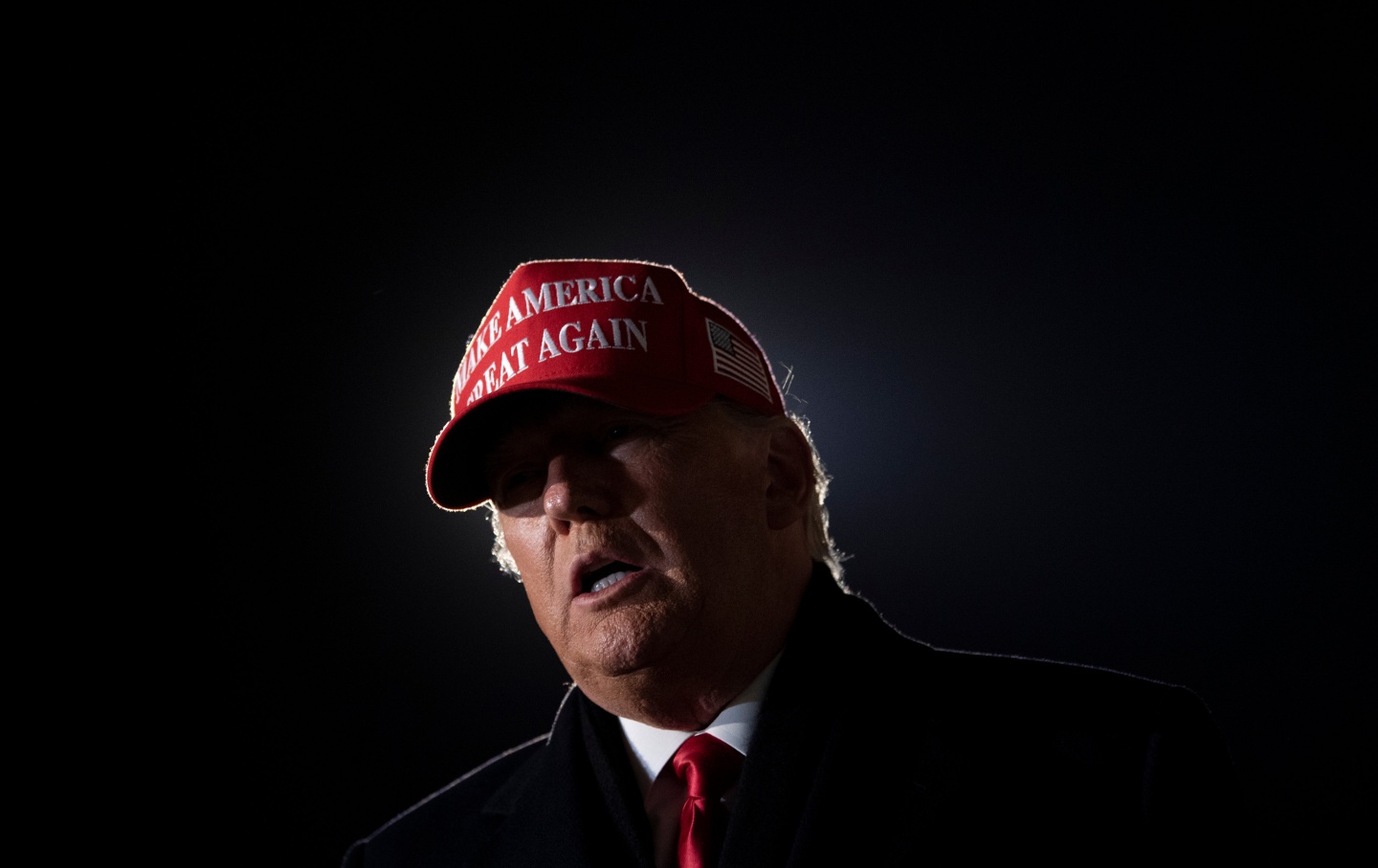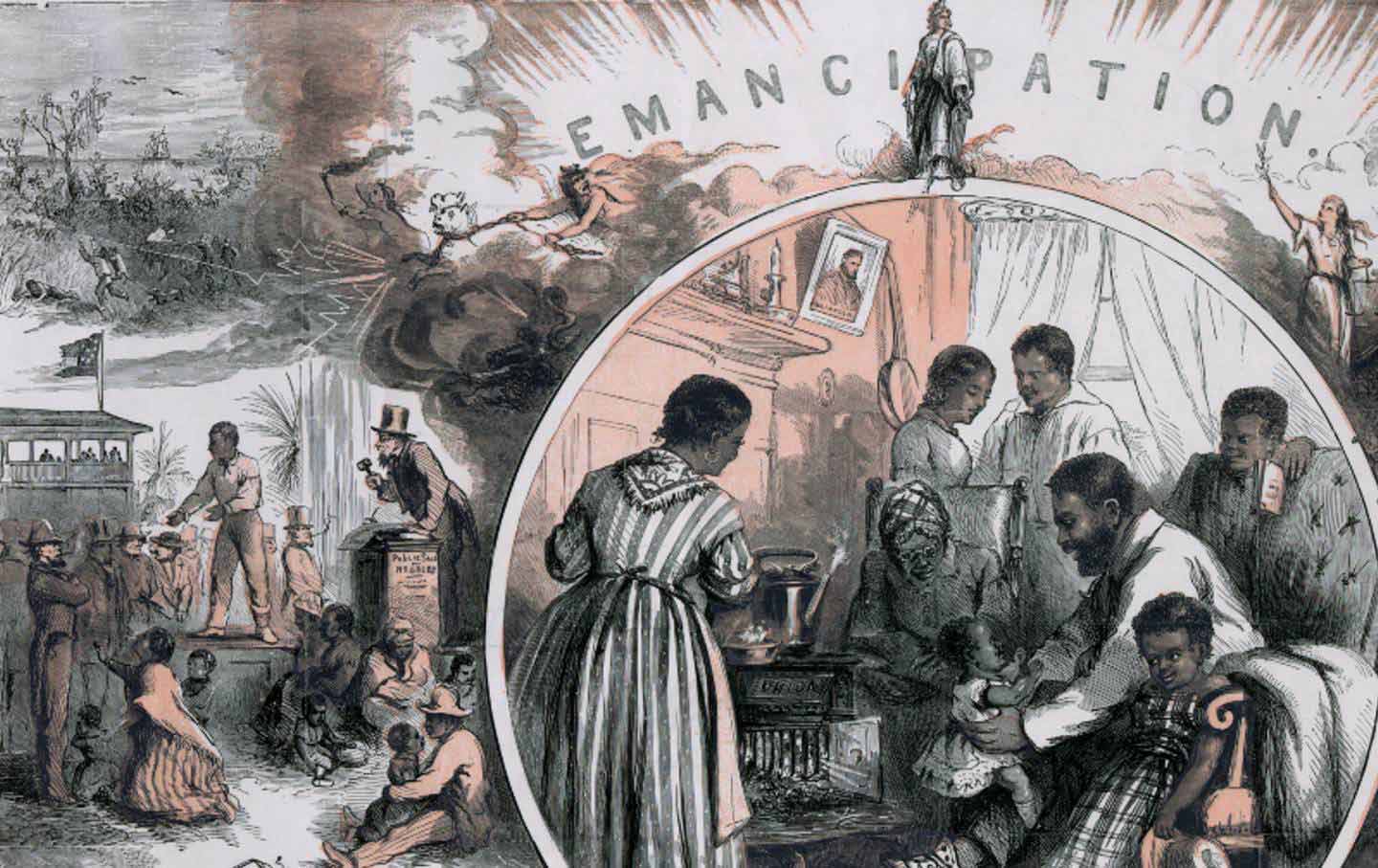Letters: Airline Deregulation, Interviewing the Cuban President, Human Resources at Human Rights Watch
The industry-friendly skies… Cuba libre… Bosses are getting the boot, too…
The Industry-Friendly Skies
Re “Pete Buttigieg Refuses to Reform a Dangerously Unsafe Airline Industry,” by Jeet Heer [January 12, 2024, online only]: It is not clear that the Department of Transportation is the ideal agency to organize a diagnostic and strategic plan for the US airline industry, or even qualified to do so. While the number of incidents that the article points to indeed suggest a possible inherent problem in the way the aviation industry is operated, the underlying potential causes transcend the remit of the DOT.
The US airline industry was deregulated in 1978 under then-President Carter, after a long lobbying effort from academic economists and new competitors. But the 1978 act was not only piecemeal legislation; it has not been reviewed or updated in over 40 years. It is the larger industrial organization of the airline industry that is the cause of a number of deficiencies, including extraordinarily low consumer approval levels.
The DOT secretary may help set in motion such a regulatory review, but it must be from the ground up, which means from the industry itself. That may require relaxation of antitrust rules in order to encourage cooperation.
If you ask airline CEOs, most will express an interest in deeper cooperation versus competition, which forces them into often counterproductive methods of cost control, including engineering and maintenance done in areas more difficult to monitor and control. Much US airline heavy maintenance is done in foreign countries in less regulated, low-cost zones, including the Dominican Republic, South Korea, China, Singapore, and El Salvador.
Matthew G. Andersson
chicago
The writer is the founder and former CEO of Indigo Airlines, a former executive adviser in Booz Allen Hamilton’s aerospace and defense business, and the author of The New Airline Code: Why the Industry Must Be Programmed to a Public-Private Integration (2005).
Cuba Libre
The Nation’s interview with Cuban President Miguel Díaz-Canel overlooked significant humanitarian and political concerns [“Q&A: Miguel Díaz-Canel,” with D.D. Guttenplan and Katrina vanden Heuvel, November 13/20, 2023]. This is alarming in light of the country’s current economic crisis, which has triggered the largest exodus in Cuba’s history.
No mention was made of Cuba’s political prisoners (1,063 as of December 2023), the majority of whom were arrested during the July 11, 2021, protests. The United Nations, Amnesty International, Human Rights Watch, and the European Parliament have condemned Cuba’s arbitrary detentions, its draconian sentencing, its imprisonment of minors, its deplorable prison conditions, and its compromised judiciary.
The Inter-American Commission on Human Rights concluded after an extensive investigation that Cuban state agents were involved Cuba’s role in the death of activist Oswaldo Payá, an issue also sidestepped in the interview. Equally concerning was the omission of the lawsuit by Cuban doctors implicating medical missions as human trafficking.
Recent legislation under Díaz-Canel, which penalizes independent cultural endeavors, digital dissent, and the unauthorized use of national symbols, was not addressed. Additionally, ill-advised economic decisions, such as the rushed attempt to unify currencies that led to wild inflation and the prioritizing of investment in hotels over support for a deteriorating public sector, went unchallenged.
Cubans must rely on foreign remittances to access exorbitantly priced food sold by the state and are desperate to escape the stifling domestic environment. They are unjustly subject to the government’s revival of the colonial practice of denying citizens the right to return to their homeland. The interviewers alluded to the cultural prowess of Cuba while ignoring the fact that hundreds of independent artists and journalists have faced intensified persecution and forced expulsion.
Given The Nation’s history of rigorous interviews with US officials, we find the lenient stance toward an undemocratically elected leader disturbing.
Coco Fusco
new york city
Saily González
miami
Lillian Guerra
Professor of Cuban & Caribbean History
University of Florida
gainesville, fla.
Omara Isabel Ruiz Urquiola
Director, Observatorio de Libertad Académica y
Observatorio de Derechos Culturales
prattville, ala.
Tania Bruguera
Founder and director, INSTAR (The Hannah Arendt Artivist Institute)
cambridge, mass.
Carlos A. Aguilera
Director, In-Cubadora
prague and barcelona
Bosses Are Getting the Boot, Too
Re The Nation’s article on the recent job cuts at Human Rights Watch, the author’s general thrust suggests that HRW’s recent financial issues affected mostly junior, not senior staff [“As Atrocities Unfold, Those Documenting Rights Violations Are Getting Laid Off,” by Saliha Bayrak, April 24, 2024, online only].
Contrary to the article’s subhed—“Human Rights Watch just let go of 39 staffers. Workers are demanding executives take pay cuts instead”—a significant number of senior staff took voluntary pay cuts and pay freezes. This, as well as changes to HRW’s leadership structure, generated savings of approximately $925,000 and helped reduce the number of personnel cuts needed, to close the $9.5 million budget shortfall.
In addition, out of the 39 positions affected by the budget cuts, 12 were at senior-level positions of associate director level, or higher.
Mei Fong
Chief Communications Officer, Human Rights Watch
washington, d.c.
We cannot back down
We now confront a second Trump presidency.
There’s not a moment to lose. We must harness our fears, our grief, and yes, our anger, to resist the dangerous policies Donald Trump will unleash on our country. We rededicate ourselves to our role as journalists and writers of principle and conscience.
Today, we also steel ourselves for the fight ahead. It will demand a fearless spirit, an informed mind, wise analysis, and humane resistance. We face the enactment of Project 2025, a far-right supreme court, political authoritarianism, increasing inequality and record homelessness, a looming climate crisis, and conflicts abroad. The Nation will expose and propose, nurture investigative reporting, and stand together as a community to keep hope and possibility alive. The Nation’s work will continue—as it has in good and not-so-good times—to develop alternative ideas and visions, to deepen our mission of truth-telling and deep reporting, and to further solidarity in a nation divided.
Armed with a remarkable 160 years of bold, independent journalism, our mandate today remains the same as when abolitionists first founded The Nation—to uphold the principles of democracy and freedom, serve as a beacon through the darkest days of resistance, and to envision and struggle for a brighter future.
The day is dark, the forces arrayed are tenacious, but as the late Nation editorial board member Toni Morrison wrote “No! This is precisely the time when artists go to work. There is no time for despair, no place for self-pity, no need for silence, no room for fear. We speak, we write, we do language. That is how civilizations heal.”
I urge you to stand with The Nation and donate today.
Onwards,
Katrina vanden Heuvel
Editorial Director and Publisher, The Nation
More from The Nation

Mr. Scarborough Goes to Mar-a-Lago Mr. Scarborough Goes to Mar-a-Lago
The hosts of Joe Biden’s favorite political talk show have quickly pivoted to kissing the ring of the incoming president.

Watching a Parallel Media Try to Make Trump the Big Sports Story Watching a Parallel Media Try to Make Trump the Big Sports Story
The president-elect did not dominate the world of sports this weekend, but Fox News and Internet tabloids are inventing new realities.

The First Amendment Will Suffer Under Trump The First Amendment Will Suffer Under Trump
Given what’s heading our way, we need a capacious view and robust defense of the First Amendment from all quarters.

Slavery in an Age of Emancipation Slavery in an Age of Emancipation
Robin Blackburn’s sweeping history of slavery and freedom in the 19th century.

How Wisconsin Lost Control of the Strange Disease Killing Its Deer How Wisconsin Lost Control of the Strange Disease Killing Its Deer
Despite early containment efforts, chronic wasting disease has been allowed to run rampant in the state. That’s bad news for all of us.

The Prison Rodeo at the Heart of Legal Enslavement The Prison Rodeo at the Heart of Legal Enslavement
Angola prison workers make between 2 and 40 cents an hour. They also have a controversial outlet for recreation and to vend their wares at market rate: a rodeo.


